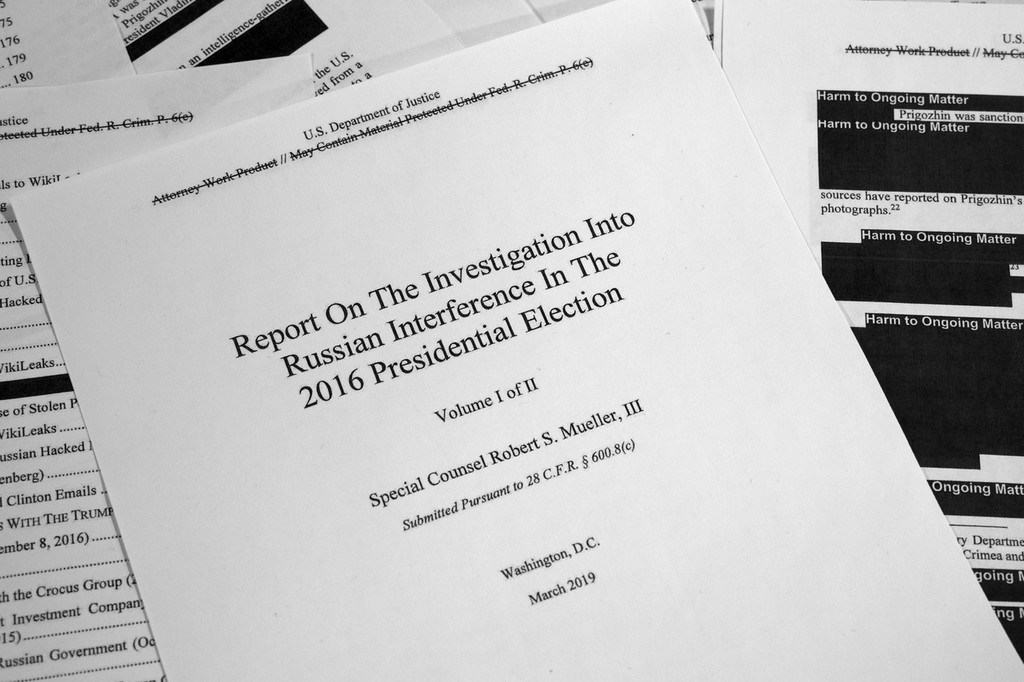Mueller drops obstruction dilemma on Congress
Updated: 2019-04-19 09:23

WASHINGTON — It's now up to Congress to decide what to do with special counsel Robert Mueller's findings about President Donald Trump.
While the special counsel declined to prosecute Trump on obstruction of justice, he did not exonerate him, all but leaving the question to Congress. Mueller's report provides fresh evidence of Trump's interference in the Russia probe, challenging lawmakers to respond. The risks for both parties are clear if they duck the responsibility or prolong an inquiry that, rather than coming to a close, may be just beginning.
"The responsibility now falls to Congress," said Rep. Jerrold Nadler, D-N.Y., the chairman of the House Judiciary Committee, which has the power to launch impeachment proceedings.
How far lawmakers will go, though, remains unclear. Republicans are eager to push past what Trump calls the "witch hunt" that has overshadowed the party and the presidency. And while Democrats say Mueller's findings are far more serious than initially indicated in Attorney General William Barr's four-page summary, they've been hesitant to pursue the ultimate step, impeachment proceedings, despite pressure from the left flank of the party to begin efforts to try to remove the president from office.
House Speaker Nancy Pelosi, traveling Thursday on a congressional trip to Ireland, said in a joint statement with Senate Democratic Leader Chuck Schumer only that Mueller's report revealed more than was known about the obstruction question.
"As we continue to review the report, one thing is clear: Attorney General Barr presented a conclusion that the president did not obstruct justice while Mueller's report appears to undercut that finding," they said.
Later, in a letter to House Democrats, Pelosi vowed: "Congress will not be silent."
Biding their time, Democrats are putting the focus on their next investigative steps. Nadler summoned Mueller to testify and the chairman said Thursday he will be issuing subpoenas for the full report. And next week, both the House and Senate are scheduled to hear from Barr, whom Democrats accuse of distorting the report's contents to Trump's benefit.
But it's unlikely that the full Mueller report or the public testimony will untangle the dilemma that Democrats face. Mueller laid out multiple episodes in which Trump directed others to influence or curtail the Russia investigation after the special counsel's appointment in May 2017, and Trump made clear that he viewed the probe as a potential mortal blow — "the end of my presidency".
The special counsel wrestled with what to do with his findings, unable to charge or exonerate, and sided with the department's guideline that indicting a sitting president would impair the ability of the executive branch to function.
"We concluded that Congress has authority to prohibit a President's corrupt use of his authority in order to protect the integrity of the administration of justice," the report said.
In all, the report revealed 10 areas of potential obstruction, from Trump's firing of FBI Director James Comey to his attempts to thwart Mueller's investigation. In many cases, the additional details show a president restrained only by aides and others around him.
"If we had confidence after a thorough investigation of the facts that the President clearly did not commit obstruction of justice, we would so state," the report says. "However, we are unable to reach that judgment. The evidence we obtained about the President's actions and intent presents difficult issues that prevent us from conclusively determining that no criminal conduct occurred."
Mueller's team hewed to department guidelines. "We recognized that a federal criminal accusation against a sitting President would place burdens on the President's capacity to govern," the report said. "We determined not to apply an approach that could potentially result in a judgment that the President committed crimes."
For Democrats, those pages amount to a green light to finish what Mueller started.
Rep. Jamie Raskin, D-Md., a member of the Judiciary Committee, said his reading of the report shows that Trump "almost certainly obstructed justice" and it was only his staff intervened to prevent certain actions.
"We have a very serious situation on our hands," he said. "It's an awesome and solemn responsibility that Congress has now to try to deal with the crisis that's contained in this report."
But what comes next may not be any more conclusive, especially as Democrats say they are unwilling to consider impeachment without bipartisan support from Republicans. The investigations may provide a steady stream of revelations that damage the president while also firing up his supporters to his defense as he gears up for re-election. Or the probes could push Congress farther than many now are willing to go.
AP
























